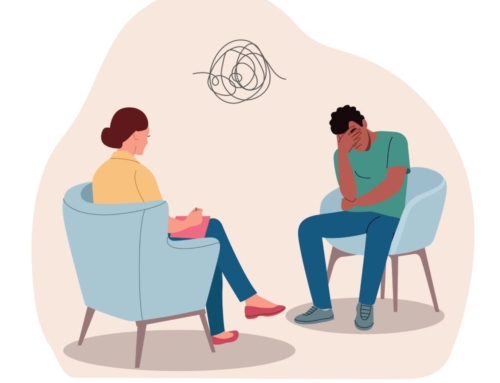Are you a people pleaser?

Photo by Karsten Winegeart on Unsplash
People-pleasing is a topic that pops up a lot in conversations related to personality types, as well as in the therapy setting. Conversations around people-pleasing have differing sides and the term has taken on a negative tone in the eyes of many.
Some individuals identify themselves as being people pleasers with recognition that it’s something they need to work on. Others ask, “So what if I am a people pleaser? Is there something wrong with wanting to make others happy?”
There is certainly nothing wrong with performing acts of kindness. In fact, not only can it turn someone’s day around, it can also boost your own mood as well as decrease stress and blood pressure.
So when does kindness become a problem?
It’s about balance. When pleasing others turns into self-sacrifice, problems start to arise and you begin feeling resentful, invisible, and depressed.
Ask yourself: To what lengths are you willing to go to make others happy? What are your reasons for wanting to do so in the first place? Do you find yourself resentful and angry at how much others take advantage of or need you?
Diving a little more deeply into some of these questions can help to distinguish the difference between healthy kindness and potentially problematic people-pleasing.
What does it mean to be a people pleaser?
People-pleasing means changing your own behaviors in order to make others happy. It’s not so much an act of selflessness, but more an effort to avoid conflict. It may also be a way of placing the needs of others above your own because you believe your needs are less important.
The habit of constantly needing to please people originates in childhood and becomes entrenched throughout your life. In its most extreme form, it is a trauma or stress response that has been coined “fawning,” which is now considered one of the four major trauma responses (i.e., fight/flight/freeze/fawn). It can also be conceptualized as a coping mechanism developed in reaction to emotional wounds that may not rise to the level of abuse, but are nevertheless intensely painful.
A people pleaser will withhold opinions, negate needs, and even engage in self-destructive behaviors to avoid conflict or risk making someone else uncomfortable. You might apologize unnecessarily, like when no one was actually hurt or an unintentional mistake was made. One of your worst fears may be that someone else doesn’t like you.
These are all unsustainable ways of engaging in relationships and can lead to anxiety, repressed anger, loneliness, and/or general unhappiness. Worse, over time these behaviors can in themselves lead to conflict and relationship problems.
Why are some folks people pleasers?
People-pleasing at its core is a result of fear: fear of rejection; fear of conflict; fear of disappointing or being a disappointment.
Those with a need to constantly please others are overly invested in being accepted. They hold the view that this acceptance can only come from positive social interactions; any perceived negative interaction might lead to rejection. The only way to feel safe and liked is through the continuous approval from others.
The fears and beliefs driving people-pleasing or fawning, stem from experiences of emotional neglect, rejection, and/or outright abuse in childhood. The avoidance conflict may actually be an act of pacifying a potential abuser or a narcissistic parent who threatens to psychologically abandon you. Or it may be a learned behavior that was reinforced over time through experiences of guilt and dismissiveness.
Negative impacts of people-pleasing
When you are committing significant time and attention to the needs of others to keep the peace, you are likely sacrificing adequate time for you. Ultimately, you are neglecting your own needs.
Overtime, this can lead to a diminishing sense of well-being. You might stop caring about or for yourself. Boundaries are sacrificed and your identity becomes confused or even lost.
When you’re so busy focusing on what others want, you’re less likely to be in touch with what you want. This leaves you dependent on others to make decisions; from little things like what you’re going to eat for dinner, to major life decisions like what kinds of relationships you wind up in.
Even when you are clear on how you feel about something, you’re still likely to withhold a challenging opinion to make those around you comfortable. Dodging confrontation can also sabotage efforts to practice healthy conflict and learn through compromise. Personal growth becomes non-existent.
Everyone has to do things they don’t want to do at times. But, if you’re agreeing to do things out of guilt or obligation because you struggle with saying no, you’re likely to become exhausted. You will wind up feeling resentful, burned out, and stressed.
Being a people pleaser is not a personality type, however, despite how much this behavior may feel like it’s who you are. Nor is it a life sentence you are doomed to live with.
Managing your people-pleasing behavior is a habit that can change. Over time, the less fawning you engage in, the more sense of control you will have over your life and your relationships.
Anxiety will decrease. You’ll stop living in so much fear. Your needs and emotions will be attended to. And, the less angry and resentful you’ll feel.
What to do?
Increase your awareness. Start paying attention to how often you say “yes.” Look for patterns in terms of situations where you tend to feel pressured to appease or do something against your wishes. Then note how you feel afterwards, without shaming yourself. Next, consider some ways that you could have handled things differently.
Pause before saying yes. A common trap of being a people pleaser is to say “yes” to too many things and wind up with too much on your plate. The next time someone asks you to do something, allow yourself to take the time you need to respond. Consider what is being asked of you and whether you can or want to say yes.
It’s okay to say, “Can I get back to you on that?”
You might find that it’s harder for you to say “no” to some people than others. Start small with a less challenging person.
Set healthy boundaries. Think of the times when you’ve agreed to things you really didn’t want to do. What were the consequences of this for you? Realistically reconsider your limits. Think of how you might have honored these in an assertive and confident manner. Take a risk and try being more assertive next time.
Consider your own feelings. This can be hard to do when you have no practice at it. You might feel guilty prioritizing yourself, particularly if it hasn’t felt safe to do so in the past. Be patient and compassionate with yourself as you learn and understand more about your own emotions and needs.
It is possible to take care of yourself and others at the same time! Healthy, non-abusive, respective relationships are about compromise and meeting each other’s needs. You may have been programmed to believe that you must please others to not be abused or alone in this world.
No relationship that is fulfilling and beneficial will ever ask this of you.
Hold your head high. Take space. Respect yourself. And, more important than anything, know that you matter. Even when you aren’t pleasing someone else.









